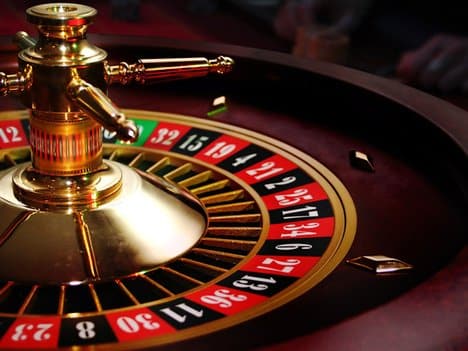
Casino entertainment have long been a staple in human culture, offering not just entertainment but a fascinating reflection of our dreams, wishes, and anxieties. From the spinning reels of a slot machine to the skill-based strategies of poker, these games represent a spectrum of human sentiments and incidents. At their core, casino games are more than a chance to make profits; they are a snapshot of life itself, where risk versus reward intertwine and fate can change in an moment.
As players convene around tables or sit in front of vibrantly illuminated machines, they take part in a ritual that transcends mere gambling. These games echo our natural desires for social interaction, excitement, and the quest for chance. They also disclose deeper truths about human behavior, such as our relationship with fate and the thrill of uncertainty. In exploring casino games, we uncover not only the rules of play but also the rich tapestry of the human experience, showcasing our intertwining narratives of hope and reality.
The Mind Behind Gambling
Gambling is deeply rooted in human psychology, appealing to various emotions and desires. The excitement of risk-taking is a core aspect that draws players in, be it it’s excitement of spinning a roulette wheel or the excitement of drawing a winning card in poker. This adrenaline is often compared to other forms of thrill, as the unpredictability of outcomes triggers a unique psychological response. Players often find themselves captivated by the chance of striking it rich, leading to an irresistible draw toward casino games.
Another, an essential component of the psychology behind gambling is the concept of hope and aspiration. Participants often indulge in fantasies of financial freedom and the luxurious lifestyle that can accompany winning. This optimism fuels their ongoing participation in casino games, as it provides a sense of meaning and the conviction that a life-changing win could be just one wager away. The story of overcoming odds and finding success resonates with many, reinforcing their dedication to play and engage with these games.
Lastly, social aspects play a crucial role in gambling psychology. Casino environments are designed to foster social interaction, where gamblers gather to share the journey of wins and losses. This shared aspect not only amplifies enjoyment but also affects behavior, as individuals often mimic the actions of others around them. https://essesv388.com/ The collective approval found in mutual thrill can enhance the emotional experience, making casino games a reflection of not just personal desires but also collective engagement within the gaming community.
## The Dual Nature of Risk and Reward
Gambling games embody the fragile balance between danger and reward that resonates profoundly with the human experience. The rush of placing a bet is often accompanied by a jolt of energy, as players are confronted with the possibility of winning big, yet conscious of the potential to suffer losses. This twofold experience reflects a essential aspect of life: the decisions we face often come with inherent risks, and the chase for gain can push us to make risky moves we might not normally consider. In this way, casino games echo real-world choices, enticing gamblers to risk not just their capital, but also their aspirations.
The allure of jackpot prizes and winnings fuels a wave of hope, encouraging players to envision a brighter future that could emerge from a lucky spin of the wheel or turn of a card. This optimism can compel individuals to engage in greater risks, encouraging them to take greater risks in search of monetary success. However, just as in life, the outcomes of these risks can lead to both victory and loss. The narratives of both jackpot winners and those who have suffered everything at the tables demonstrate the chaotic nature of luck and its impactful effect on our lives.
Ultimately, the experience of engaging with gambling activities serves as a vivid illustration of the human condition. Every session played is loaded with the tension of uncertainty, as gamblers weigh the rewards against the risks. This balance not only highlights the excitement that comes with betting but also exposes the vulnerabilities that come with the desire for more. As we explore the complexities of choice and results in both the gambling world and in life, we find that the search for benefit shapes our sense of self and journeys in significant manners.
Community and Isolation in Gambling Environment
Casino environment is a special blend of social interaction and personal endeavor, reflecting the dualities of individual experience. Players often come together around tables, experiencing in the excitement of the action, rejoicing in wins, and sympathizing over losses. This communal aspect is essential, as it establishes a sense of belonging and bonding among varied groups of people. Regular attendees to gaming establishments may form friendships and develop routines, turning the gambling venue into a alternative home where they experience connected to a larger community of gamblers.
However, the appeal of gambling games can also result to loneliness. As players become engrossed in the thrill of playing, they may withdraw from personal relationships or fail to engage with the world outside the casino. For some, the pursuit of a windfall can distract from genuine relationships, leading to loneliness. The experience of being among people yet experiencing solitary is not uncommon, as the focus shifts from shared enjoyment to the individual concerns of each player’s journey.
This interplay of society and isolation creates a rich mosaic that defines casino culture. It highlights the intricacy of social interactions, where happiness and sorrow coexist. Gambling venues serve as both a refuge for social engagement and a stage for individual challenges, demonstrating how deeply entwined our desire for companionship and the personal quest for wealth can be. In navigating this environment, players confront their own narratives—seeking both the thrill of the wager and the companionship of other gamblers, eventually mirroring the broader spectrum of human experience. roda4d